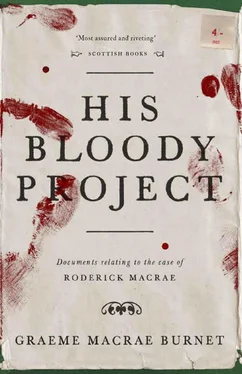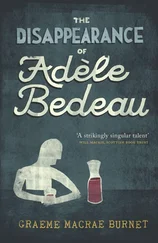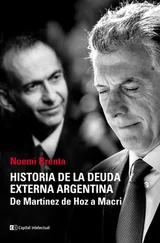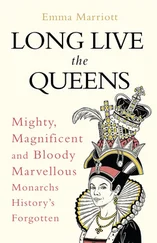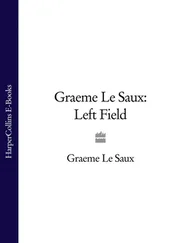Mr Murchison nodded. ‘Aye, now and again, I saw him muttering to himself.’
‘Frequently?’
‘Not infrequently.’
At this point the Lord Justice-Clerk intervened. ‘How often do you mean by “not infrequently”?’
‘Quite often.’
The Lord Justice-Clerk: ‘Every day, every week or once a month?’
‘Not every day, but certainly every week.’
‘So it was quite normal for you to observe this behaviour?’
‘Yes, my lord.’
Mr Sinclair: ‘And did you ever overhear what he was saying to himself?’
‘No.’
‘Why was that?’
‘He would cease whenever anyone came near him. And, in any case, it was more of a muttering, rather than a speaking out loud.’
‘I see. And had the prisoner always behaved in this way?’
‘I could not say.’
‘Did you observe him talking to himself in this way when he was a child?’
‘I don’t believe so.’
‘Can you remember when you first observed him behaving in this manner?’
Mr Murchison shook his head and was instructed to answer by the Lord Justice-Clerk.
‘I cannot recall.’
‘Was it ten years ago, five years ago, or one year ago?’
‘More than one year ago.’
‘But not five years ago?’
‘No.’
‘Did you ever see the prisoner behave in this way before his mother’s death?’
‘I could not say with any certainty.’
‘In conclusion, would it be fair to say that you did not regard the prisoner as completely normal?’
‘That would be fair.’
Mr Sinclair then concluded his questioning and Kenny Smoke was excused. The next witness to be called was Duncan Gregor. Mr Gifford began by questioning him about the morning of the murders, but the Lord Justice-Clerk intervened, putting it to him that since the events in question were not in dispute, there was no need to waste time going over ground that had already been established. Mr Sinclair did not demur and for the rest of the day, proceedings moved along at a more rapid pace. A pattern emerged whereby the Crown sought to establish rational motives for the murders, while Mr Sinclair attempted, with varying degrees of success, to portray the accused as not being in his right mind. Ironically, the defence’s best moments were provided by the testimony of Aeneas Mackenzie. Mr Philby described him as, ‘a porcine fellow [who] did not appear to grasp that his derogatory statements about the accused were in greater service of the defence than the Crown’.
When asked for his view of the prisoner’s state of mind, he bluntly replied, ‘He was a lunatic.’
‘A lunatic?’ Mr Sinclair repeated mildly. ‘Could you explain to the court what you mean?’
‘Just that. Everyone knew he was off his head.’
‘“Everyone” being who?’
‘Everyone in the parish.’
‘You mean he had something of the status of “village idiot”?’
‘Aye, that and more.’
‘What more?’
‘He had always a stupid grin on his face. He would always be sniggering about something when there was nothing to be sniggering about.’
‘I see. So would you say that he was not of sound mind?’
‘Aye, I most certainly would. There was many a time I’d have happily wiped the grin off his face and I’d do it now if I had the chance.’
When Mr Sinclair concluded his examination, it took Mr Mackenzie some moments to grasp that he was excused, and he left the stand ‘mumbling to himself in a manner that suggested it was he whose sanity might be in question’.
The final witness of the day was the schoolmaster, Mr Gillies, whom Mr Philby, clearly by this time enjoying himself, described as having ‘lady’s hands and a face one would struggle to describe — or remember’. Mr Gifford elicited a glowing testimony to Roddy’s abilities from the schoolmaster. He then questioned him about his visit to the prisoner’s father to suggest that he continue his education.
‘And what was the result of this visit?’
‘Unfortunately, Roddy was required by his father to work on the family’s croft.’
‘Were you in the habit of making such proposals?’
‘That is the only occasion I have done so.’
‘And why did you single out the prisoner in this way?’
‘He was without doubt the most gifted pupil I have taught.’
Mr Gifford then moved onto Roddy’s general behaviour and demeanour. ‘Was he an unruly pupil?’
‘On the contrary, he was well-behaved and attentive.’
‘You are aware, Mr Gillies, that my colleagues for the defence have lodged a plea of insanity in this case?’
‘Yes.’
‘Did you ever detect any signs of insanity in the prisoner?’
Mr Gillies appeared to give this question serious thought before replying that he had not.
‘You never witnessed him raving or talking to himself?’
Mr Gillies shook head. ‘Never,’ he said.
After a brief consultation with his team, Mr Gifford indicated that he had no more questions.
Mr Sinclair rose for the defence.
‘Was the prisoner popular amongst his schoolmates?’ he asked.
‘Not especially.’
‘What do you mean by “not especially”?’
‘Simply that,’ said Mr Gillies, looking somewhat bemused.
‘Did he play or socialise with his fellows in the normal way?’
‘I think he was a rather solitary boy, quite happy in his own company.’
‘Somewhat aloof from his peers?’
‘You could say that, but I saw nothing abnormal in it. Some children are naturally gregarious, others less so.’
Mr Sinclair seemed unsure whether to pursue his line of questioning, then decided that he had little to gain from providing a platform for a witness who seemed to have such high regard for his client.
As it was by then half past four, the proceedings were adjourned for the day. The Lord Justice-Clerk informed the jury that they would be accommodated in a hotel for the night and counselled that they should desist from discussing the particulars of the case or forming any opinion about it.
It had all, wrote Mr Philby, ‘made for excellent entertainment and every word was closely followed by those fortunate enough to have gained admission. Indeed, as if to corroborate the worthy Aeneas Mackenzie’s testimony, the only person who did not appear gripped by the spectacle was the prisoner himself.’
Second day
The trial resumed at half past nine the following morning. Roddy was brought in to cheers and catcalls from the public gallery, the occupants of which, wrote Mr Murdoch for the Courier , ‘appeared to believe that they were in a theatre rather than a court of law, and that the unfortunate prisoner was no more than a pantomime villain, brought forth for their entertainment’. Roddy did not once glance towards his tormentors. Mr Sinclair greeted him with a friendly pat on the shoulder as he took his seat in the dock. The Lord Justice-Clerk allowed the din to continue for a few minutes, perhaps reckoning it prudent to allow the spectators to let off a little steam before bringing the court to order. And indeed when he finally struck his gavel, the court-room was rapidly hushed.
This respectful silence was short-lived, however, as Mr Gifford rose to call John Macrae as the first witness of the day. Mr Philby of The Times described Mr Macrae as a ‘tiny, bent figure with the appearance of a man twice his forty-four years. He leaned heavily on a gnarled stick and stared out from the dock with an expression of bewilderment in his small, dark eyes. The prisoner kept his head bowed for the duration of his father’s evidence and the crofter did not look at his son.’ The judge then sternly warned those in the gallery to remain silent on pain of being taken below and held in contempt. It was agreed that, as he was more proficient in the ‘ancient language of the Highlands’, Mr Macrae’s examination would be conducted in Gaelic and a translator was duly brought forth. Mr Gifford, in deference to the apparent infirmity of the witness, commenced his examination in a mild tone.
Читать дальше
